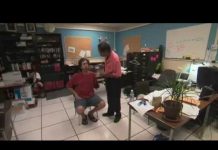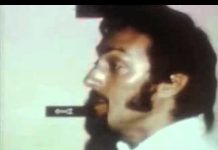“From Where I Stand” is a documentary that creates a space for a potent, often overlooked dialogue. It acts as a stage, spotlighting the narratives of young, black gay individuals as they candidly express their views on a spectrum of meaningful topics.
The film is, at its core, a tribute to the power of personal narrative. It works to untangle the complexities of identity, letting viewers peer into the multifaceted worlds of its subjects. This is a film that invites you to engage, to listen, and most importantly, to understand.
The conversations woven throughout “From Where I Stand” are not merely discussions; they are powerful explorations of self. The subjects tackle the topic of family, dissecting their personal experiences and relationships with families both given and chosen. The honesty and depth of these interactions speak to the universal struggle for acceptance, belonging, and love.
The film also explores the ongoing spectre of AIDS, reflecting the weight of its history within the gay community. The raw discussions on AIDS take us beyond statistics and headlines, letting us into the very human experiences of fear, loss, resilience, and the fight for survival. This is not a clinical discourse, but a deeply intimate reflection on a crisis that has indelibly marked their community.
Community is a cornerstone of “From Where I Stand”. The film weaves the thread of community through every conversation, reflecting on its power and necessity in the face of adversity. It presents a resilient, vibrant community, steeped in strength and bound by shared experience, and yet beautifully diverse in its nuances.
“From Where I Stand” also delves into spirituality, a topic often fraught with tension for those who identify as both black and gay. The subjects share their personal journeys of faith and spirituality, revealing the dichotomies and reconciliations inherent in their experiences.
The power of “From Where I Stand” lies in its authenticity. The film doesn’t profess to be an authoritative examination or an exhaustive discourse. Instead, it provides a platform for the expression of real experiences, real struggles, and real triumphs.
This documentary, in its depiction of real-life narratives, challenges us to interrogate our own perspectives and prejudices. It calls on us to look beyond the labels that society imposes and to see the individuals behind them, in all their complexity and humanity.
“From Where I Stand” compels us to lend an ear to these narratives, to truly listen to the experiences of young black gay individuals and consider their perspectives. It’s not a plea for sympathy, but a call for empathy, understanding, and respect.
This is a film that not only chronicles personal experiences but prompts a larger discussion about inclusivity, acceptance, and the human condition. It is a testament to the resilience and strength of the human spirit, in its many forms.
With its unflinching honesty and evocative storytelling, “From Where I Stand” proves itself a worthy watch. It is an offering of truth, a reflection of experiences that are often left in the shadows. It’s a call to action – to listen, to learn, and to stand in solidarity with those whose stories it so eloquently shares.
In the grand theatre of life, “From Where I Stand” is a reminder of the profound need for representation and the power of a single voice in initiating change. As we navigate our increasingly interconnected world, films like these are more than just important—they are essential.

































